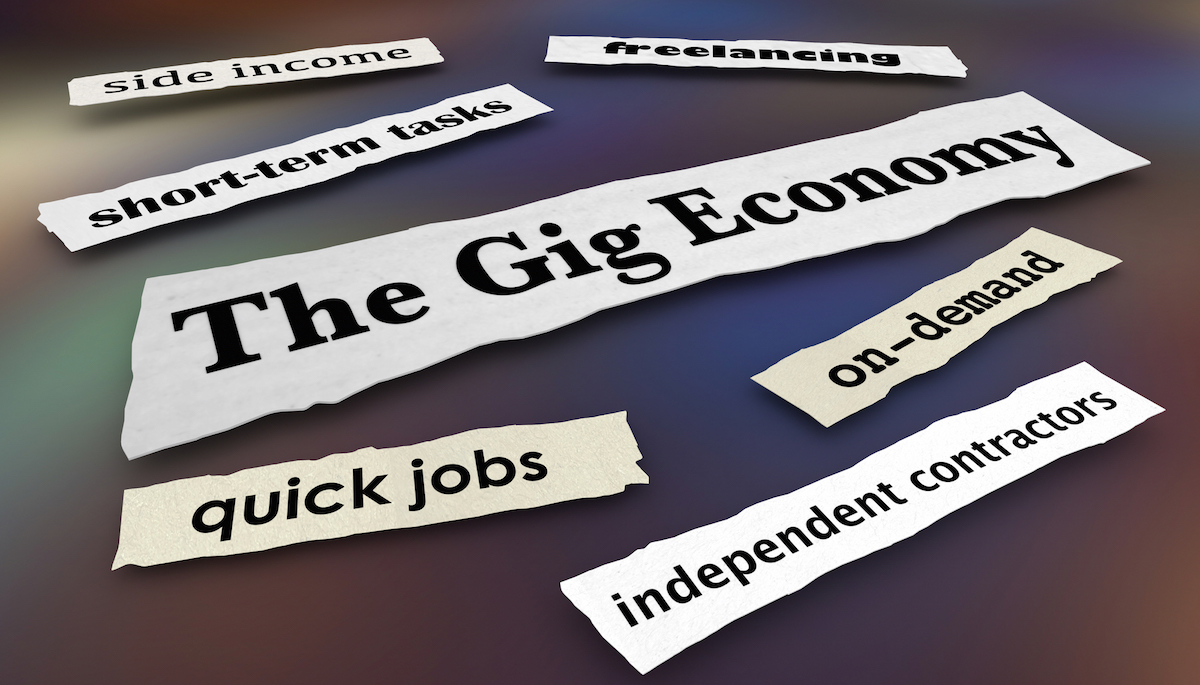UPDATE: According the The Guardian, it appears that “Uber and Lyft drivers are bracing for a shutdown in California, one of the rideshare companies’ largest markets.” This is a over the designation of drivers as employees over freelancers. This could have a long-reaching effect on the Gig economy overall. Stay tuned!
Governor Gavin Newsom’s signature made it official. California’s Assembly Bill 5 (AB5) is now law. In case you missed the news leading up to this, AB5 is the law that can turn a freelancer into an employee. Under the law, which takes effect on January 1, 2020, a freelancer will be designated an employee of a company if they perform job duties as part of the core business offerings of the company, OR if the way they work is directed by a company boss, OR if the worker doesn’t have their own independent business. How does that sound to you?
In a letter, Governor. Newsom said, “Assembly Bill 5 is a landmark legislation for workers and our economy…a next step is creating pathways for more workers to form a union, collectively bargain to earn more, and have a stronger voice at work.” Obviously, the focus is on helping workers. But do freelancers see themselves as workers? Do they want to? One thing we know is they want more pay as well as some benefits and protections.
What This Means for California Freelancers
While this bill was championed by labor groups, it may have a significant impact on our Gig Economy freelancers. Here are some considerations for you independent types:
- Exceptions: There are exceptions. Physicians, Real Estate Agents, Web Designers, Financial Planners, Grant Writers, Artists, etc. will not get designated as employees. Basically, if the state issues you a license to do your work, you’ll be exempt from this law.
- Beauty: Workers in hair style, nails, and cosmetics will end up being employees unless they set their own price and get paid directly.
- Protections: If you get classified as a worker, the bill aims to make sure you receive the same protections as employees, namely “minimum wage, workers’ compensation, unemployment insurance, paid sick leave, and paid family leave.”
- Taxes: Employees can’t declare the same expenses, but they also don’t need to submit a Schedule C. Going from freelancer to worker will affect your taxes.
App-economy companies that giggers use most, like Uber, Lyft, Postmates, Instacart, and DoorDash, scrambled to keep this from becoming law, as they benefit from the lower cost of hiring contractors. They’ll all likely end up in court trying to prove their workers are not actually employees and don’t meet the standards set forth in this law.
What’s Next?
When it comes to passing laws, the end never seems to be the end. Expect challenges, law suits, and associated bills to start flying through the system. But for now, if you’re building revenue based on gigs, your freelancing freedom could soon come to an end. And that’s not even mentioning the changes in the way you’ll file taxes and account for expenses. But maybe this law can create the best of both worlds — the freedom to freelance with the benefits of employment. What do you think? Got questions? If you have questions about your gig income, give us a call at 888 297-3321.

